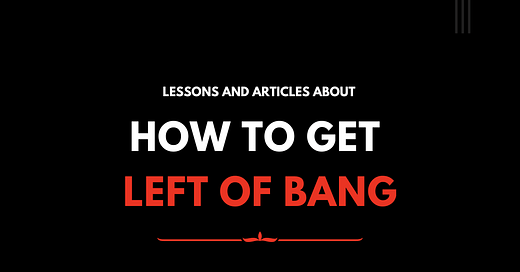Take Blame, Give Credit
This is a guest post by Jonathan Smith.
In 2013, I had the fortunate experience of serving as a mentor at my prior organization. The mentor program was a leadership development program within the company and I was asked to serve as a mentor to an employee in another department to help them see a different side of the organization. One aspect of this program included a panel discussion day where three mentors hosted a talk, answered questions, discussed their careers and, if asked, gave advice to the group of mentees, which totaled about 40 total audience members. I was told following the session that people felt they had gotten a lot of great insight from the discussion, but it’s important to note that serving as a mentor and sitting on this panel was also personally rewarding for me. I took pages of notes during the process that I still refer to today.
One of the questions that sticks with me to this day from this panel discussion was, “If you had to sum up your professional beliefs on a bumper sticker, what would it say?” As basic as it was, I didn’t answer the question. I told the group, which included mentees, other mentors, and various leaders within my organization, that I couldn’t think of anything just then that summed up my beliefs so succinctly. I think that was the truth, but I also honestly had no idea what to say in that moment. Having now spent nearly ten years with two large financial firms and in my capacity at The CP Journal, I have an answer that I feel confident in.
Take Blame, Give Credit.
In my personal and professional experiences leading me to where I am today I have found only a couple of constants. One of the few things that I have noticed regardless of the organizations I have been a part of is that the people I most respect personally and professionally almost always take blame and give credit. What I mean by that in the most basic terms is that when something is going well, these people will use the opportunity to point out how the work of someone else contributed to that success. On the flip side, when something goes wrong, they are quick to accept that they were responsible for it, are ready to outline the steps to solving the problem, and are committed to seeing it resolved.
By taking blame and giving credit you can accomplish multiple things in your organization all at the same time:
Stand Out: I could probably argue that your organization is starving for someone to take blame. That person is a rare find these days. Organizations are struggling with accountability. People rarely want to take any accountability and, thus, decisions suffer. By serving as someone that the organization knows they can count on when things aren’t going well you will position yourself as a person of trust that is committed to the future success of the organization.
Gain Support: There is no better way to show your team, either as a teammate or as a leader, that you are on their side than by taking the blame when things go badly. Instead of pointing a finger, accept that blame and stop the ball from continuing to roll downhill. You will find that the consequences of taking the blame aren’t as bad as you thought they would be and, in the process, you will create advocates.
Help Others: By giving credit away for your successes and those of your team you will help other people get recognition and advance their own careers. It is rare for one person to get so much individual recognition that they transform an organization. You will need a team to achieve success as an organization, and through this success you will see faster and greater career growth for yourself. By ensuring that your team and teammates are recognized, the rest of the organization will realize how valuable your group is, not just one individual. That’s when real progress happens.
By establishing yourself within your organization as someone who accepts accountability you will stand out, gain support from others, and help the career development of the people around you. I have had the opportunity to work with many different types of people and have found that the most rewarding relationships in my personal and professional lives are with those that take blame and give credit.
To see this mantra play out in a real world example, check out this recent instance in the news of a Burger King franchise owner shunning personal credit and recognizing his team for their role in their organizational success.



